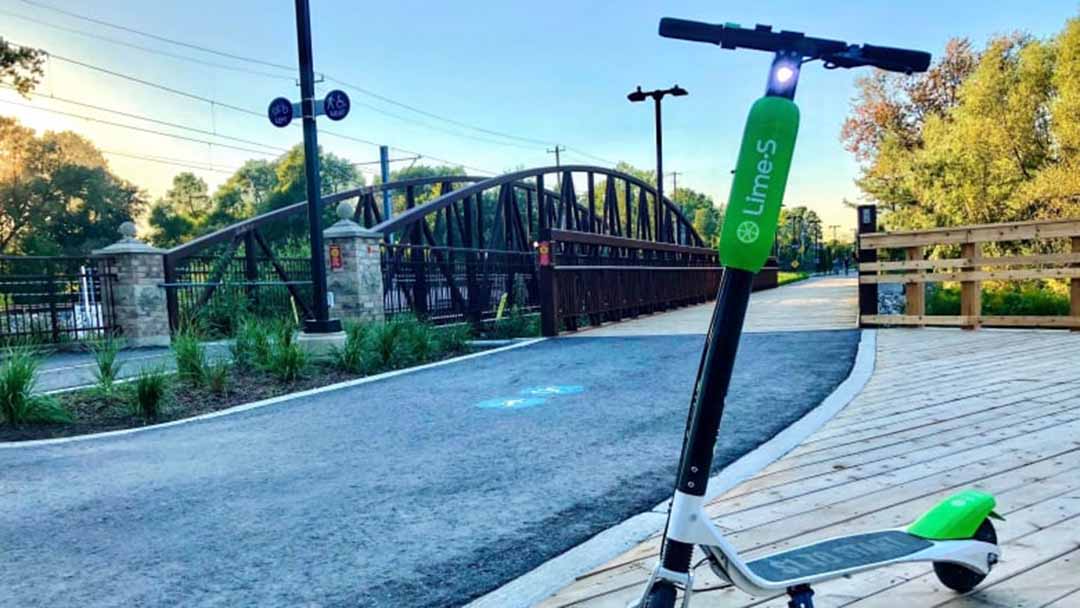University of Waterloo’s David Johnson Research and Technology Park, the surrounding Idea Quarter District, and Laurel Trail were the chosen locations for the Lime E-Scooters’ pilot project that ran this past fall. This project allowed users to locate the nearest scooter and rent it for use within the pilot route using a smartphone app and GPS. Over the course of the 9-week pilot project, a total of 18,309 trips made by 6,000 unique users were recorded, with the greatest concentration of use being in uptown and near the University of Waterloo.
The Ontario Highway Traffic Act does not allow e-scooters on public roads, as their definition as a vehicle is currently undetermined. However, they are allowed on private roads, which is why the role of the David Johnson Research and Technology Park in the pilot project was so important. “The park has a network of private trails that we were able to offer to the city for use in the pilot,” Mike Pereira, the manager of business development at the David Johnson Research and Technology Park, said. “These also connected to the Laurel Trail which connected through main campus to Waterloo Park, and they also connect to the LRT station in the Park.”
The City of Waterloo has high hopes to expand the Lime Scooter project further, but first has to analyze the data from phase one of the pilot project. Over the nine weeks, Lime estimates that the 18,309 trips made on the scooters avoided 13,029 km of diving, subsequently saving approximately 1,272 L of gas and thus 4,983 kg of carbon dioxide from being released into the air. The cumulative distance travelled in these trips is equivalent to half of a lap around the Earth.
Phase two of the pilot project will run from Apr. 1 to Sept. 30 2019 and ideally work alongside the new LRT system that is set to launch in spring 2019.
“[Phase two will] look at how people get to and from the [LRT] station, and whether Lime’s scooters help make it easier for people to adopt public transit,” Pereira said.
The City of Waterloo and Lime are also interested in conducting research with UW.
“We’re hoping to have a team of researchers looking at how the scooters are used and share that data with the City and Province to help guide policy developments around these types of emerging transportation alternatives,” Pereira said.
This is especially important for the potential integration of the e-scooters into the Ontario Highway Traffic Act.
The high number of users and trips per user is an indicator that a good pilot route was chosen and demonstrates how Waterloo embraces technological innovation and is seen as a progressive city. Lime and the City of Waterloo are optimistic for phase two of the pilot project and for future expansion of the e-scooters within KW and the rest of Canada.






























